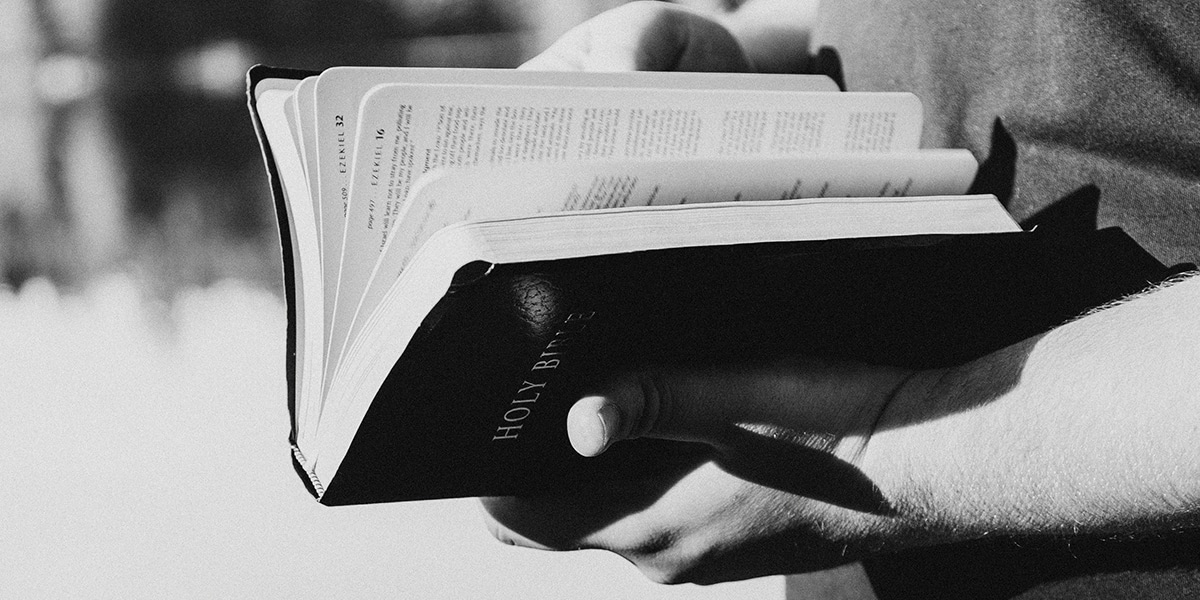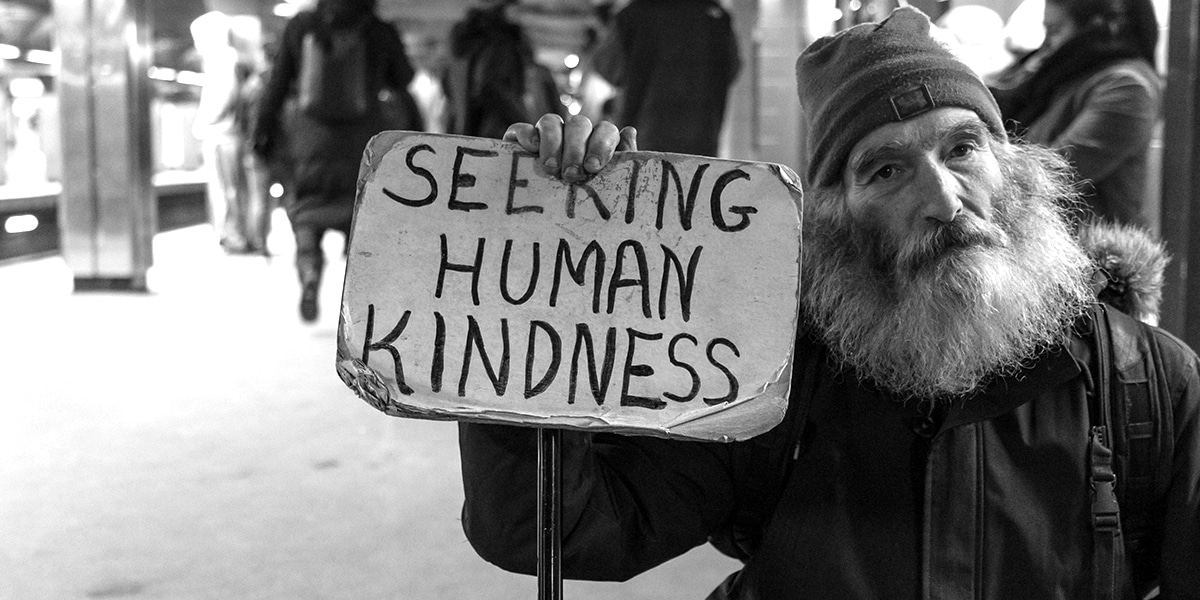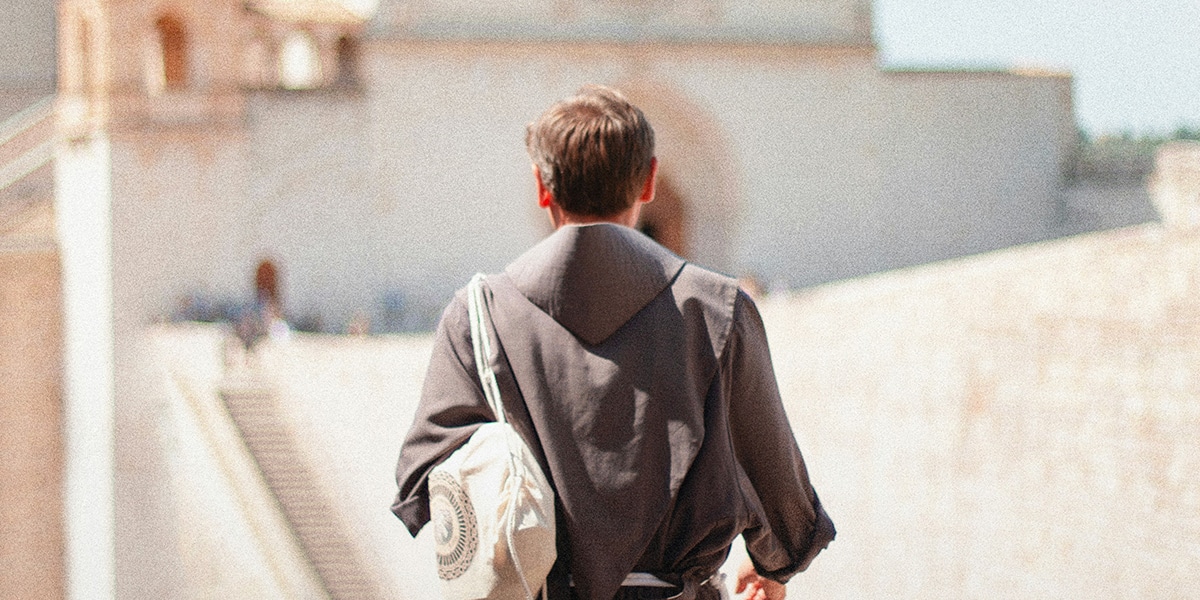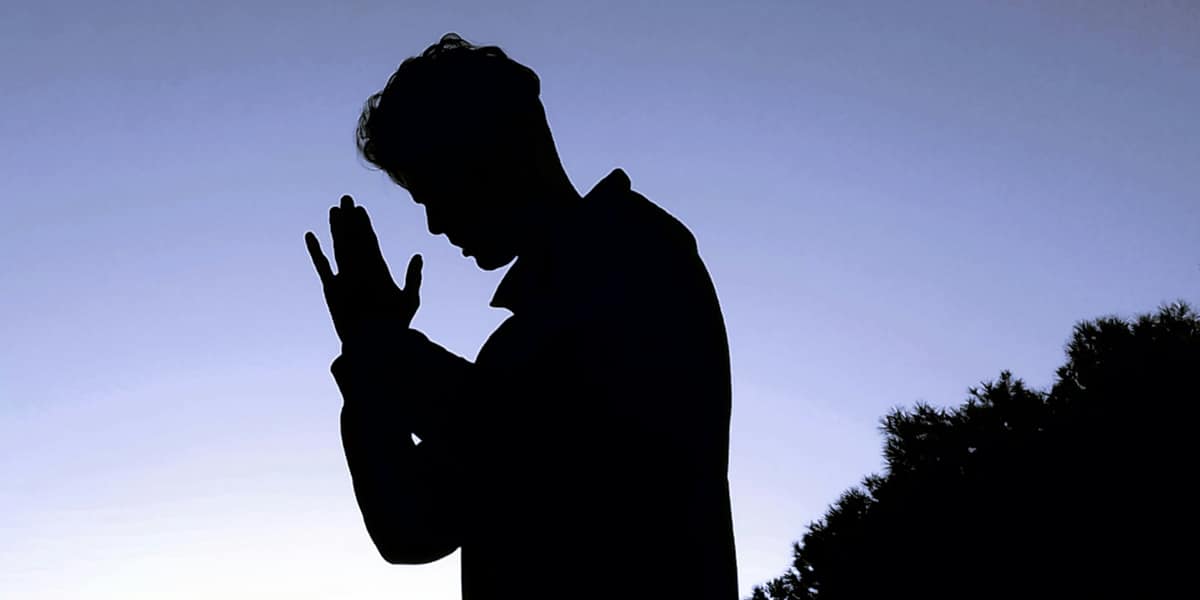PARIS (OSV News) — For three days, Paris welcomed several thousand participants from around the globe who took part in the 38th “International Meeting for Peace,” organized Sept. 22-24 by the Community of Sant’Egidio.
In a message sent to the gathering and read during a closing event in front of Notre Dame Cathedral Sept. 24, Pope Francis said that “the risk that the many conflicts will dangerously spread instead of ending is more than real,” and that he takes up “your cry and that of the many people affected by war, and I address it to political leaders: Stop the war! Stop the wars! We are destroying the world! Let us stop while there is still time!”
High level participants of the peace meeting included French President Emmanuel Macron, Sant’Egidio’s founder Andrea Riccardi, Paris Mayor Anne Hidalgo, Archbishop Laurent Ulrich of Paris, Anglican Archbishop Justin Welby of Canterbury, who is primate of the Anglican Communion, Chems-Eddine Hafiz, who is rector of the Grand Mosque of Paris, and Chief Rabbi of France Haim Korsia.
Franco-Lebanese writer Amin Maalouf, secretary of Académie Française — the institution in charge of safeguarding the French language — spoke of the suffering of the Lebanese people, as the Middle East conflict between Israel and Hezbollah escalated.
In front of a packed room of the Palais des Congrès Sept. 22, Macron emphasized the need to enter into a “creative dynamic” to “imagine peace,” the theme of the meeting.
“Before imagining peace, there is the need to humanize (the world) once again, to know each other, to understand, to have the patience to observe,” he stressed.
“This path is indispensable. The religions you represent here play a fundamental role in this respect, and France is honored to help them, particularly in the Middle East. Wherever we can save a school, protect a classroom, we save a little of this possible path,” the French president said.
Peace today “is the real battle,” he said, adding that “peace is only possible in coexistence.”
He greeted “friends” from Sant’Egidio as he opened his speech, showing his fond relationship with Riccardi, an Italian professor of history and a politician who founded the community in 1968.
Later that day Macron joined Sant’Egidio leaders, Cardinal Matteo Zuppi, president of the Italian bishops’ conference, Cardinal Fridolin Ambongo of Kinshasa, Congo, and other religious leaders at a small dinner where “conflict in Ukraine, the Israeli offensive against Hezbollah in Lebanon,” the war in Congo and other pressing topics were discussed, La Croix reported.
The Community of Sant’Egidio is active among the homeless, migrants and the elderly and has earned prestige as a facilitator or observer in numerous successful peace negotiations in several war-torn countries, including Albania, Guatemala, Kosovo and Mozambique. Today, Sant’Egidio has 60,000 members in 74 countries. The origins of the annual gatherings, like the one in Paris, go back to the interfaith meeting organized by St. John Paul II in Assisi, Italy, Oct. 27, 1986.
In his speech in Paris, Riccardi called for the rediscovery of the culture of peace, emphasizing how the modern world seems to have drifted away from this fundamental value.
“Talking about peace in these times may seem like a dreamer’s task. … International institutions responsible for peace, especially the United Nations, are often stripped of the authority that comes from state consensus,” he said.
For Riccardi, imagination is the key to escaping resignation and creating “alternatives” to the seemingly endless cycles of war. “We must imagine peace,” he concluded, adding that “at a time dominated by divisions, religions must rediscover the sense of living together.”
Also present throughout the meeting was Archbishop Ulrich, who recounted Sept. 22 what he had seen in the Holy Land, where he recently visited.
Despite their weariness, the archbishop said, “men and women of goodwill” do not “give up educating children and young people, caring for the sick and the dying, welcoming newborns whether they are with or without family and maintaining the ties that, when the time comes, will rebuild peace,” he said. For the archbishop of Paris, this is an exemplary attitude that can begin peacemaking even in the midst of war.
Archbishop Ulrich also spoke of the success of the Paris Olympic Games and the challenge of restoring Notre Dame Cathedral.
“If we are capable of uniting all nations around the ideal expressed by Olympism, but also of building or rebuilding cathedrals, imagining peace is well within our reach,” he said.
“The universal mobilization that was manifested during its fire and accompanied its restoration also testifies to what humanity can do best when it comes together around a common and just cause,” the archbishop said of the iconic cathedral that will reopen Dec. 8.
Twenty-one roundtable discussions were held Sept. 23 in various locations around Paris, featuring testimonies and exchanges from 150 religious and political leaders.
For Marco Impagliazzo, president of Sant’Egidio, these forums were intended to be “a laboratory for listening and dialogue.”
Valérie Régnier, head of Sant’Egidio France, mentioned the “59 ongoing conflicts.” “There have never been so many wars since 1945,” she lamented.
But over the years, “Sant’Egidio has cultivated a realistic and tenacious hope,” Régnier stressed. “Peace is possible. It is born of concern for the poorest, and begins with rebuilding the torn fabric of so many human and urban peripheries. It continues with the search for links that can be reestablished, so that enemies and strangers can look at each other, and end up rediscovering each other as brothers.”
Bishop Vitalii Kryvytskyi of the Roman Catholic Diocese of Kyiv-Zhytomyr represented Ukraine in Paris and stressed that the church has an important role to play on the path to regaining peace.
The bishop, a Salesian, explained to the Italian news agency ANSA the difficulty is that “people are increasingly tired” of the war. “We all had in our hearts the hope that the war would end sooner, but instead it continues.”
He said Ukrainians feel that the world is also tired of war in their country. “We hear and see how Ukraine is being talked about less and less. We also feel this from the reduction in humanitarian aid, but the needs of the people are not decreasing but rather growing.”
He said that the great concern is that “during this year the international community has not found the tools, the ways to stop the aggressor.”
Participation in these forums was free, and some 1,500 young people attended.
On Sept. 24, the closing day of the meeting, participants were spread out over different locations, according to their religious denomination, to pray for peace.
Christians gathered in the Parisian Church of St. Severin. After an ecumenical prayer, they crossed the nearby Seine River to Notre Dame Cathedral, still closed as final renovation work is completed.
“We must keep religions away from the temptation of becoming a tool that fuels nationalism, ethnicity, populism. Wars are intensifying. Woe to those who try to drag God into wars!” Pope Francis said in his remarks sent to the gathering.
The concluding ceremony included a minute’s silence in memory of victims of wars and an exchange of a sign of peace.
By Caroline de Sury | OSV News







News & Commentary
Stop the wars while there is still time, pope tells Sant’Egidio peace summit in Paris
PARIS (OSV News) — For three days, Paris welcomed several thousand participants from around the globe who took part in the 38th “International Meeting for Peace,” organized Sept. 22-24 by the Community of Sant’Egidio.
In a message sent to the gathering and read during a closing event in front of Notre Dame Cathedral Sept. 24, Pope Francis said that “the risk that the many conflicts will dangerously spread instead of ending is more than real,” and that he takes up “your cry and that of the many people affected by war, and I address it to political leaders: Stop the war! Stop the wars! We are destroying the world! Let us stop while there is still time!”
High level participants of the peace meeting included French President Emmanuel Macron, Sant’Egidio’s founder Andrea Riccardi, Paris Mayor Anne Hidalgo, Archbishop Laurent Ulrich of Paris, Anglican Archbishop Justin Welby of Canterbury, who is primate of the Anglican Communion, Chems-Eddine Hafiz, who is rector of the Grand Mosque of Paris, and Chief Rabbi of France Haim Korsia.
Franco-Lebanese writer Amin Maalouf, secretary of Académie Française — the institution in charge of safeguarding the French language — spoke of the suffering of the Lebanese people, as the Middle East conflict between Israel and Hezbollah escalated.
In front of a packed room of the Palais des Congrès Sept. 22, Macron emphasized the need to enter into a “creative dynamic” to “imagine peace,” the theme of the meeting.
“Before imagining peace, there is the need to humanize (the world) once again, to know each other, to understand, to have the patience to observe,” he stressed.
“This path is indispensable. The religions you represent here play a fundamental role in this respect, and France is honored to help them, particularly in the Middle East. Wherever we can save a school, protect a classroom, we save a little of this possible path,” the French president said.
Peace today “is the real battle,” he said, adding that “peace is only possible in coexistence.”
He greeted “friends” from Sant’Egidio as he opened his speech, showing his fond relationship with Riccardi, an Italian professor of history and a politician who founded the community in 1968.
Later that day Macron joined Sant’Egidio leaders, Cardinal Matteo Zuppi, president of the Italian bishops’ conference, Cardinal Fridolin Ambongo of Kinshasa, Congo, and other religious leaders at a small dinner where “conflict in Ukraine, the Israeli offensive against Hezbollah in Lebanon,” the war in Congo and other pressing topics were discussed, La Croix reported.
The Community of Sant’Egidio is active among the homeless, migrants and the elderly and has earned prestige as a facilitator or observer in numerous successful peace negotiations in several war-torn countries, including Albania, Guatemala, Kosovo and Mozambique. Today, Sant’Egidio has 60,000 members in 74 countries. The origins of the annual gatherings, like the one in Paris, go back to the interfaith meeting organized by St. John Paul II in Assisi, Italy, Oct. 27, 1986.
In his speech in Paris, Riccardi called for the rediscovery of the culture of peace, emphasizing how the modern world seems to have drifted away from this fundamental value.
“Talking about peace in these times may seem like a dreamer’s task. … International institutions responsible for peace, especially the United Nations, are often stripped of the authority that comes from state consensus,” he said.
For Riccardi, imagination is the key to escaping resignation and creating “alternatives” to the seemingly endless cycles of war. “We must imagine peace,” he concluded, adding that “at a time dominated by divisions, religions must rediscover the sense of living together.”
Also present throughout the meeting was Archbishop Ulrich, who recounted Sept. 22 what he had seen in the Holy Land, where he recently visited.
Despite their weariness, the archbishop said, “men and women of goodwill” do not “give up educating children and young people, caring for the sick and the dying, welcoming newborns whether they are with or without family and maintaining the ties that, when the time comes, will rebuild peace,” he said. For the archbishop of Paris, this is an exemplary attitude that can begin peacemaking even in the midst of war.
Archbishop Ulrich also spoke of the success of the Paris Olympic Games and the challenge of restoring Notre Dame Cathedral.
“If we are capable of uniting all nations around the ideal expressed by Olympism, but also of building or rebuilding cathedrals, imagining peace is well within our reach,” he said.
“The universal mobilization that was manifested during its fire and accompanied its restoration also testifies to what humanity can do best when it comes together around a common and just cause,” the archbishop said of the iconic cathedral that will reopen Dec. 8.
Twenty-one roundtable discussions were held Sept. 23 in various locations around Paris, featuring testimonies and exchanges from 150 religious and political leaders.
For Marco Impagliazzo, president of Sant’Egidio, these forums were intended to be “a laboratory for listening and dialogue.”
Valérie Régnier, head of Sant’Egidio France, mentioned the “59 ongoing conflicts.” “There have never been so many wars since 1945,” she lamented.
But over the years, “Sant’Egidio has cultivated a realistic and tenacious hope,” Régnier stressed. “Peace is possible. It is born of concern for the poorest, and begins with rebuilding the torn fabric of so many human and urban peripheries. It continues with the search for links that can be reestablished, so that enemies and strangers can look at each other, and end up rediscovering each other as brothers.”
Bishop Vitalii Kryvytskyi of the Roman Catholic Diocese of Kyiv-Zhytomyr represented Ukraine in Paris and stressed that the church has an important role to play on the path to regaining peace.
The bishop, a Salesian, explained to the Italian news agency ANSA the difficulty is that “people are increasingly tired” of the war. “We all had in our hearts the hope that the war would end sooner, but instead it continues.”
He said Ukrainians feel that the world is also tired of war in their country. “We hear and see how Ukraine is being talked about less and less. We also feel this from the reduction in humanitarian aid, but the needs of the people are not decreasing but rather growing.”
He said that the great concern is that “during this year the international community has not found the tools, the ways to stop the aggressor.”
Participation in these forums was free, and some 1,500 young people attended.
On Sept. 24, the closing day of the meeting, participants were spread out over different locations, according to their religious denomination, to pray for peace.
Christians gathered in the Parisian Church of St. Severin. After an ecumenical prayer, they crossed the nearby Seine River to Notre Dame Cathedral, still closed as final renovation work is completed.
“We must keep religions away from the temptation of becoming a tool that fuels nationalism, ethnicity, populism. Wars are intensifying. Woe to those who try to drag God into wars!” Pope Francis said in his remarks sent to the gathering.
The concluding ceremony included a minute’s silence in memory of victims of wars and an exchange of a sign of peace.
By Caroline de Sury | OSV News